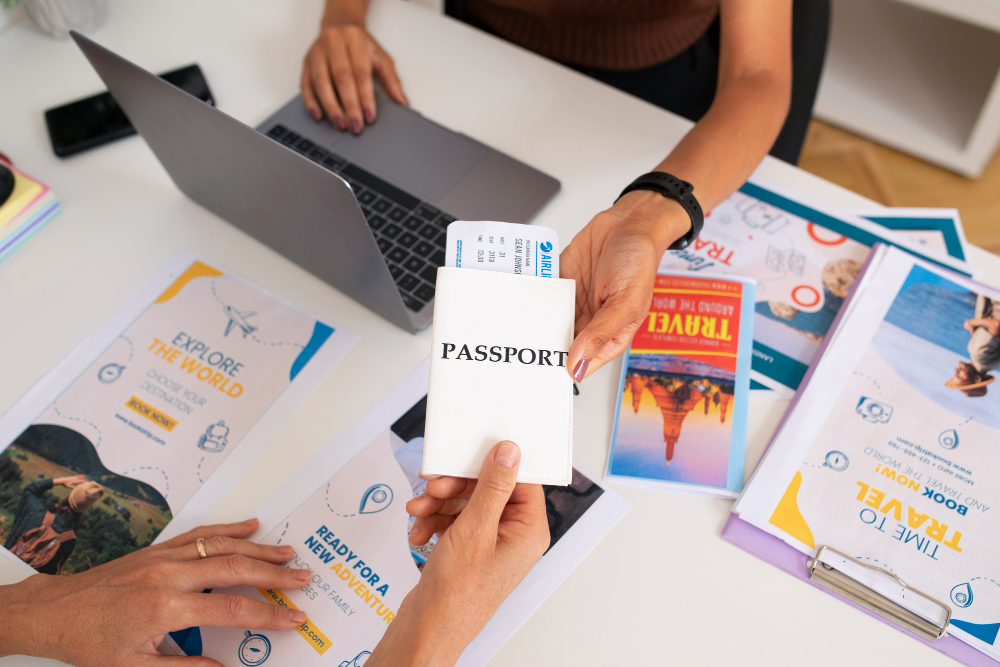Travel insurance is essential for protecting both your well-being and finances when you’re away from home. The right plan can safeguard you from unexpected events, from medical emergencies to trip cancellations. This guide will help you understand the different types of travel insurance, what they cover, how to compare plans, and tips for finding the best one.
Why You Need Travel Insurance
Travel insurance provides a safety net for various travel-related risks. Whether it’s a minor inconvenience like a delayed flight or a major event such as a medical emergency abroad, travel insurance offers financial protection and peace of mind.
Key benefits include
- Medical Coverage Abroad: Health insurance often doesn’t cover costs abroad. Travel insurance ensures you have coverage for medical emergencies.
- Trip Cancellations: If you have to cancel your trip due to unforeseen circumstances like illness or family emergencies, you won’t lose your non-refundable deposits.
- Lost Baggage & Delays: Travel insurance reimburses you for lost, stolen, or delayed baggage, which can be a lifesaver if you arrive without essentials.
- Emergency Evacuation: Coverage includes medical evacuation if you need urgent treatment or to return home due to health reasons.
Types of Travel Insurance
Understanding the different types of travel insurance can help you select a plan tailored to your needs. Here are the most common categories:
- Single Trip vs. Multi-Trip Plans
Single Trip Plans: Cover one trip, ideal if you travel infrequently.
Multi-Trip Plans: Cover multiple trips over a year, best for frequent travelers.
- Medical Travel Insurance
Offers coverage for accidents, illnesses, hospital visits, and emergency services.
- Trip Cancellation/Interruption Insurance
Protects your investment if you need to cancel or cut short your trip due to certain covered reasons (e.g., illness, family emergency).
- Baggage and Personal Belongings Insurance
Covers loss, theft, or damage to your personal items during the trip.
- Evacuation Insurance
Includes coverage for emergency evacuations due to health or safety risks, which can be costly without insurance.
- Comprehensive Plans
These plans combine multiple types of coverage (e.g., medical, trip cancellation, baggage) into one package.
Key Factors to Consider When Comparing Travel Insurance Plans
When comparing travel insurance, evaluate these factors to ensure the plan meets your travel needs:
- Coverage Limits
Each type of coverage has a limit on how much the insurer will pay. Medical expenses, for example, may have high limits, while lost baggage coverage might have a lower cap. Make sure the limits align with your travel activities and destinations.
- Deductibles
Some policies have deductibles, or the amount you must pay before the insurance covers the rest. Higher deductibles often mean lower premiums, but assess your willingness to pay out-of-pocket in case of a claim.
- Policy Exclusions
Exclusions are events or situations not covered by the insurance. For instance, some policies may not cover injuries from adventure sports or pre-existing medical conditions. Review the exclusions carefully to understand what’s not included.
- Destination-Based Coverage
Some plans are tailored for specific destinations. If you’re traveling to a country with higher medical costs, like the United States, make sure your plan offers adequate coverage.
- Emergency Support Services
Quality travel insurance providers offer 24/7 emergency assistance, including multilingual support, medical referrals, and help with logistics in the event of a crisis.
- Pre-Existing Conditions
Many policies exclude pre-existing medical conditions. However, some offer optional add-ons or waivers if you meet certain requirements, such as purchasing the policy within a specific time frame of booking your trip.
- COVID-19 Coverage
COVID-19 has changed the landscape of travel insurance. Many insurers now offer coverage for COVID-19-related trip interruptions, cancellations, or medical expenses. Check if your policy includes this coverage.
- Adventure Sports & Activities
If you plan on engaging in activities like skiing, scuba diving, or mountain climbing, look for a policy that includes coverage for these high-risk activities. Standard policies may not cover injuries from such activities without an add-on.
How to Compare Travel Insurance Plans
With so many plans available, comparison can feel overwhelming. Use these steps to find the best plan:
- Use Online Comparison Tools
Comparison websites like Squaremouth, InsureMyTrip, and TravelInsurance.com allow you to view quotes from multiple providers at once. This saves time and offers a side-by-side view of coverage and prices.
- Review the Policy Document
After narrowing down options, read the full policy document or “certificate of insurance.” Pay attention to details about what’s covered, what’s excluded, and any terms or conditions.
- Consider Reviews and Reputation
Look for reviews of both the insurance provider and the specific plan. Reviews from other travelers can highlight common experiences with claims processing and customer service.
- Evaluate the Claims Process
An easy claims process is crucial. Some insurers allow digital claims submission and tracking, which simplifies the process. You can often find information on this in reviews or on the insurer’s website.
- Get Quotes Based on Your Trip Details
Insurance quotes vary based on factors like age, trip length, and destination. Provide accurate information to get tailored quotes, and avoid underestimating or overestimating trip costs.
Top Travel Insurance Providers in 2023
To help you get started, here’s a brief overview of some of the leading travel insurance providers known for reliability, customer service, and comprehensive coverage.
- Allianz Global Assistance
Known for comprehensive policies and excellent customer service, Allianz offers single and multi-trip plans with a range of coverages, including COVID-19 coverage.
- World Nomads
A popular choice for adventurous travelers, World Nomads offers coverage for many high-risk activities and has flexible plans that you can purchase even after starting your trip.
- AXA Assistance USA
AXA provides extensive medical coverage and evacuation services. They have multiple tiers to suit different budgets and travel needs, including coverage for COVID-19.
- Travel Guard by AIG
Travel Guard offers customizable plans and a user-friendly claims process. They have options specifically for seniors and families.
- Travelex Insurance Services
Known for family-friendly policies, Travelex covers kids under 18 for free with certain plans. They also offer solid trip cancellation and interruption coverage.
Tips for Finding Affordable Travel Insurance
While you want good coverage, you also want a plan that fits your budget. Here are some tips to find affordable options:
- Buy Early
Purchasing insurance right after booking your trip gives you a broader range of options, including “cancel for any reason” (CFAR) add-ons.
- Bundle with Credit Card Benefits
Many travel credit cards offer travel insurance perks like trip delay reimbursement or lost luggage coverage. Check what’s covered by your card before buying additional insurance.
- Opt for Essential Coverage Only
If you’re looking to cut costs, consider a basic plan that covers only the essentials, like emergency medical coverage. This can be much cheaper than a comprehensive plan.
- Avoid Unnecessary Add-Ons
Add-ons like rental car coverage might not be needed if your auto insurance or credit card already covers it. Only choose add-ons that are essential for your trip.
- Look for Discounts
Some insurers offer discounts for students, seniors, or group bookings. Check if you’re eligible for any discounts that can reduce the premium.
How Much Does Travel Insurance Cost?
The cost of travel insurance varies depending on several factors:
- Age: Older travelers typically pay more due to a higher risk of medical issues.
- Destination: Trips to countries with high healthcare costs, like the U.S., tend to have higher premiums.
- Trip Length: Longer trips increase the premium as they pose more risks.
- Coverage Amount: Higher coverage limits lead to higher premiums.
As a general rule, travel insurance costs between 4-10% of the total trip cost. For instance, if your trip costs $5,000, expect to pay $200 to $500 for travel insurance, depending on the coverage.
Making a Claim: What You Need to Know
If an incident occurs and you need to file a claim, having the right documents on hand can streamline the process. Here’s a quick checklist:
- Receipts and Invoices: Keep records of any payments related to the trip, such as airfare and hotel invoices.
- Proof of Loss: For lost or stolen items, file a report with local authorities and get a copy as evidence.
- Medical Records: If you seek medical treatment, retain any documentation from the healthcare provider.
- Trip Details: Keep copies of your itinerary, booking confirmations, and correspondence related to any delays or changes.
Submit the claim as soon as possible, ideally through an online portal if available, and follow up with the insurer if you don’t receive a timely response.
Conclusion
Travel insurance is invaluable for peace of mind, especially in a world where travel uncertainties are common. Start by identifying your needs, compare different plans, and look for coverage that aligns with your trip’s unique aspects. With careful consideration, you’ll find a travel insurance plan that offers both comprehensive protection and value for your money. Safe travels!


















